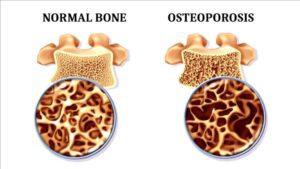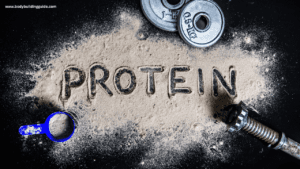Exercise is no doubt difficult. Anyone who claims otherwise is not trying hard enough. Despite how challenging it can be, it’s crucial to incorporate exercise into our daily lives. A workout can give you sore muscles. Fortunately, magnesium can be extremely effective in treating post-exercise muscular soreness.
About The Mineral: Magnesium
Almost every somatic cell requires magnesium to function properly. Cellular functions like the production of metabolic energy and the creation of important proteins and nucleic acids. Moreover, it keeps the heart rhythm steady, bone strength, and muscles functioning normally.
What Merits Does Magnesium Have?
The following are the merits of magnesium from a muscular point of view:
- The essential amino acids in magnesium play a crucial role in proper muscle function and relieve unrelaxed, sore, and cramped muscles.
- The neurological system as a whole is soothed and relaxed by magnesium, which also enhances sleep patterns.
- Doctors use it to treat abnormal heart rhythm since it is essential for cardiac muscular movements.
- Magnesium is a necessary mineral that helps the body absorb calcium and vitamin D, which are important for teeth and bone strength.
Magnesium’s Part in Muscle Healing
One of the most important tasks of magnesium includes the prevention of calcium uptake by torn muscles after a workout. Calcium stiffens the muscles, which is not so desirable for muscle growth and might lead to muscle injury in successive workout sessions.
Just think if your muscles became stiff and contracted enough to reduce your overall mobility. Sounds painful, right? This is what it feels like to have a magnesium deficiency in the body. Without enough magnesium, muscles cannot fully relax, which may cause cramps. Low magnesium levels can result in the accumulation of lactic acid, which is known to cause discomfort and tightness after exercise.
Magnesium encourages flexibility and helps to prevent injuries by relaxing tense muscles. Adequate amounts of magnesium in your diet can result in increased muscle strength and power, leading to a more flexible and smoother workout session.
Muscle aches and weakness can result from low vitamin D levels. Muscle mass and athletic performance may both diminish with the persistence of low vitamin D levels. Magnesium also stimulates the body’s absorption of vitamin D.
Magnesium Types to Reduce Muscle Tension
It must be noted that there are a few types of magnesium compounds that are readily accepted by the body. Below are the following types of magnesium compounds that help in muscle recovery:
- Magnesium sulphate: The best magnesium compound for muscle recovery, which can even prevent the body’s normal shivering reaction from anaesthesia.
- Magnesium chloride: This is the most commonly found magnesium compound in nature. This can be obtained from fresh dark green vegetables and legumes if added to the diet.
- Magnesium citrate: In cases where magnesium levels are low because of absorption difficulties, this compound is preferred. It is the easiest to digest and causes fewer digestive problems.
Different but nonetheless beneficial advantages are offered by other forms of magnesium. The following are some examples:
- Magnesium malate aids in the regulation of proper blood sugar.
- Magnesium glycinate helps people regulate their stress.
- Magnesium taurate is beneficial in controlling high blood pressure.
Which Foods Can Provide Magnesium?
Now, the question arises as to which types of foods to include to ensure your body has an abundance of magnesium. Don’t worry, here is a list of all the foods you can add to your meals to replenish your muscles after the wear and tear:
- The magnesium content of dark green vegetables such as spinach, broccoli, beans, and peas is the highest.
- You can include some reddish vegetables like beetroot, pumpkin, and carrots. They are good sources of magnesium as well.
- Protein-rich foods like nuts, lentils, dry fruits like almonds, peanuts, and cashews, and, in some cases, fruits like pineapple, avocado, peach, and banana provide rich sources of magnesium.
- Whole grains and brown rice are also recommended for a low-carb, magnesium-rich balanced diet.
Despite being found in numerous meals, magnesium is often found in trace amounts. Like most minerals, magnesium has daily requirements that cannot be satisfied by a single item. Magnesium intake can be increased by eating a wide variety of foods, such as 2 to 3 servings of fruits and vegetable salads each day and lots of whole grains.
Artificial Magnesium Supplements: Safety Tips
If you are inclined to take medical magnesium supplementation, then take a look at the following basic guidelines:
- You can experience diarrhoea, nausea, and abdominal cramps if you take a magnesium supplement greater than 350 mg.
- Furthermore, some varieties of magnesium are more prone to having undesirable consequences than others, like magnesium oxide, magnesium carbonate, magnesium gluconate, and magnesium chloride.
- Excessive stress or any kind of disease that reduces the body’s capacity to use magnesium should be checked by a professional practising doctor.
Before using supplemental magnesium, see your doctor if you’re also taking other drugs. This makes it more likely that it won’t conflict with other medical procedures.
Final Words
Sore muscles are automatically healed by the body with adequate amounts of rest, proper hydration, and a balanced diet rich in magnesium compounds. Other than these, you might even try using hot water bags or putting towels wet with hot water over the painful muscles for instant relief. Muscle building is a slow process, and it needs all of your dedication and patience to achieve desirable results.








